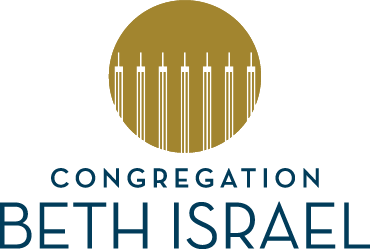“Our Fragile Home”

“Our Fragile Home”
From the desk of Rabbi David Lyon
Just five days after Yom Kippur, the most solemn day of the year, we begin Sukkot, the beginning of “Z’man Simchateinu,” the season of our joy. Judaism is a celebration of goodness and blessing. Our celebration includes time in the Sukkah, the fragile booth that recalls the way our Israelite ancestors lived in the desert wilderness. The Sukkah, built to allow views of the sky, enables us to feel, at once, protected by God’s presence and mindful of our precarious situation. Life is fragile. We build strength around us by learning from the past about signs of danger and ways to use God’s gifts for good.
Today, it’s also symbolic of the world in which we live. We’re not a nomadic people; we’re not “Iv’rim,” Hebrews who wander. Rather, we’re Jews who are at home in America and, of course, Israel. But, we’re not at peace just because we’re home, are we? When danger lurks, when do we pull the alarm? When do we call for help? Those who have been in those critical moments, know how important it is to break the emergency glass to pull the alarm on time. It’s a matter of life and death, and we have no choice but to choose life. History teaches us that sometimes we pull the alarm too late. It’s not uncommon to misunderstand signs of danger or to dismiss them as passing concerns. The best lessons from history teach us that signs of danger should be taken seriously and, today, we know that if we see something, then we must say something.
On television, Tuesday night, we all saw and heard what can’t be refuted and must be retracted. To “stand off” or “stand by,” instead of to “stand down,” a reference to a White Nationalist group, was an alarm that was difficult not to hear. It hasn’t been sufficiently and effectively retracted, so it’s our obligation to say something. It doesn’t matter if you’re a conservative or a liberal, a Republican or a Democrat, but it does matter that you’re a Jew. We can begin by insisting that all public figures denounce anti-Semitism and racism, and to do so in unequivocal terms using words that every anti-Semite can understand. Anything less is leaving the door open to White Supremacists and White Nationalists, under all the names they’re known, to continue to operate and with increased latitude. Their t-shirts are printed, their torches are prepped, and their targets are being identified now.
Let’s use this time to double-down on our own and our neighbors’ well-being. Let’s not look in hindsight at the rubble created by our neglect to speak up; and, let’s not bury the souls of those who are innocent victims of historical hate and racism. I cherish Sukkot, as a festival holiday when we sit in the Sukkah with family and friends. The “season of our joy,” well-earned after ten days of repentance, shouldn’t be marred by danger and fear. We are at home in America, but nothing in history suggests that we should take it for granted. So much can change so fast.
At Congregation Beth Israel, we honor Jewish life. We honor those who championed the causes on which we depend, such as Samuel Karff, Ruth Bader Ginsburg, John Lewis, Martin Luther King, Jr., Abraham Joshua Heschel, and George H.W. Bush, and many more. Let’s do our part without failure to honor the past and secure the future. Let us celebrate, at last, a season of joy.
Shabbat Shalom,
![]()
